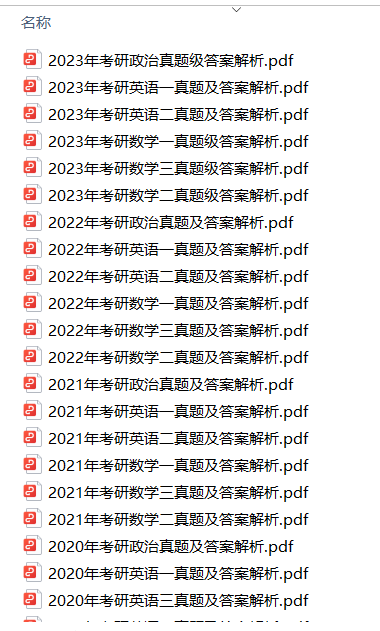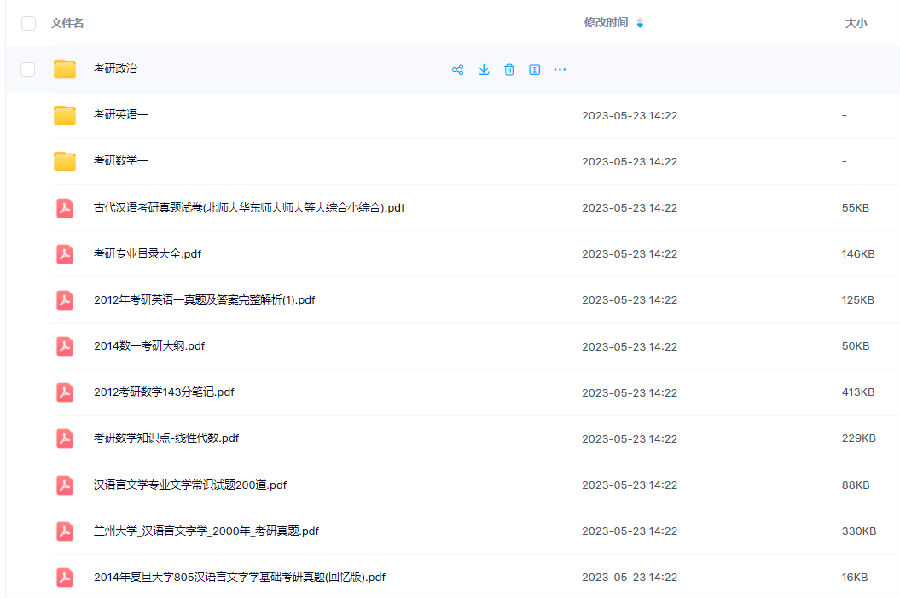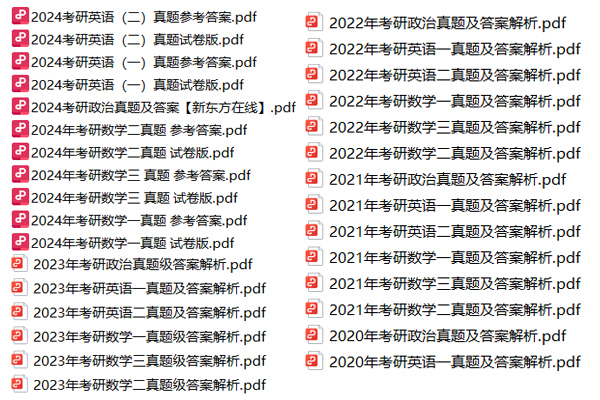特惠-26考研冲刺
特惠-27考研课
双证-在职硕士
免联考-同等学力
26考研-肖八笔记
26考研-时政刷题
26考研-作文押题
26考研-全套真题
26考研-提前估分
保研-路线图
27考研-智能择校
27考研-英语测评
27考研-新大纲对比
热门-计算机择校

扫码加入训练营
牢记核心词
学习得礼盒
众所周知,在考研英语中,得阅读者,得英语,考研英语阅读是分值最高的一考题,所以考生需要掌握大量的词汇,同时要有丰富的阅读经验,尤其是外刊杂志。所以今天给大家整理了来自于英美国家的报刊杂志文章,进行2020考研英语阅读预测,希望对大家有帮助。
原文期刊:哈佛商业评论
原文标题:What Good Are Experts?
文章分析了在计算能力日益提高和网络进一步释放群体智慧的环境下专家的优势所在,并就各机构应如何充分利用专家优势提出建议。它属于现象分析型文章,按照“指出现象——分析现象——提出建议” 的脉络展开论述。
PART 1
原文
ⅠNot long ago, recommendations from experts, even if imperfect, were the best ones available. So people relied on them to address challenges across the entire spectrum of complexity. At one end of that spectrum are the problems with unchanging causes and effects that can be confidently solved using rules-based processes. Today, computers increasingly solve such problems more cheaply and reliably than experts can. At the other end of the spectrum are probabilistic problems whose causes and effects are not clear and whose outcomes are significantly governed by chance. The collective wisdom of ordinary people,which is being released by the network, often proves to be better than experts at addressing such problems.
ⅡNonetheless, research across many fields, from complex systems to psychology, suggests there is a sweet spot where experts still have a unique edge. They're well equipped to solve problems that have rules-based solutions but that allow a high degree of freedom in arriving at them. When avenues for solutions are relatively few, such as in tic-tac-toe, the degree of freedom is limited. When the potential avenues are many, the degree of freedom is high. The greater the degree of freedom in solving a problem, whether rules-based or probabilistic, the more complex the challenge is.
ⅢComputers are exceedingly adept at rules-based problems with a limited degree of freedom, like tic-tac-toe. However, they're often clumsy at high-freedom problems because, unlike people, computers cannot quickly eliminate unproductive avenues of inquiry and make creative connections among bits of information. Experts are likely to continue to outperform computers in rules-based areas that require deep, domain-specific knowledge, such as innovation and design. Success in these domains requires the efficient, creative recombination of a vast array of building blocks in novel, productive ways.
ⅣCrowds have proved to be skilled at solving certain probabilistic problems, but they often fare poorly if they lack sufficient domain-specific knowledge. Just as an expert coach will probably create a better game plan than a crowd because he can draw on unique knowledge of his team and the competition, experts within a company can be expected to outperform a nonexpert collective in shaping the company's strategy.
ⅤFor problems where experts still prevail, psychologist Philip Tetlock offers an insight about how to nurture desired expertise. Using a metaphor borrowed from the Greek poet Archilochus, Tetlock segregated experts into hedgehogs and foxes. Hedgehogs, who deeply know one big thing, extend its explanatory reach to everything they encounter. Foxes, in contrast, tend to know a little about many aspects of their field and do not stick to a single approach in solving complex problems. Work by Tetlock suggests that organizations should find and nurture foxes, who have a “crowdlike” cognitive diversity. Compared with hedgehogs, foxes have a broader set of tools in their cognitive toolboxes, allowing them to effectively match solutions to problems.
PART 2
词汇短语
1.recommendation [ˌrekəmenˈdeɪʃn] n.建议
2.available [əˈveɪləbl] a.可用的
3.spectrum [ˈspektrəm] n.光谱,文中借指范围
4.complexity [kəmˈpleksəti] n.复杂度
5.probabilistic [ˌprɒbəbɪˈlɪstɪk] a. 基于概率的,或然的
6.edge [edʒ] n.优势
7.avenue [ˈævənju:] n. 渠道,方式
8.exceedingly [ɪkˈsi:dɪŋli] ad. 非常,极其地(P3L1)
9.clumsy [ˈklʌmzi] a.笨拙的
10.fare [feə(r)] v.进展
11.prevail [prɪˈveɪl] v.普遍发生,盛行
12.cognitive [ˈkɒgnətɪv] a.认知的
13.diversity [daɪˈvɜ:səti] n. 多样性
14.rely on 依靠
15.sweet spot n.甜点,指(平衡各种因素的)最有效点, 最有效位置
16.adept at 擅长
17.an array of 一系列
18.match...to... 将……和……相匹配
19.*hedgehog [ˈhedʒhɒg] n. 刺猬
(标*的为超纲词)
PART 3
翻译点评
ⅠNot long ago, recommendations from experts, even if imperfect, were the best ones available. So people relied on them to address challenges across the entire spectrum of complexity. At one end of that spectrum are the problems with unchanging causes and effects that can be confidently solved using rules-based processes. Today, computers increasingly solve such problems more cheaply and reliably than experts can. At the other end of the spectrum are probabilistic problems whose causes and effects are not clear and whose outcomes are significantly governed by chance. The collective wisdom of ordinary people,which is being released by the network, often proves to be better than experts at addressing such problems.
翻译:不久前,专家的建议就算不完美也会被认为是现有最佳方案。因此,无论问题繁简,人们一并倚赖专家意见。在复杂范围的一端是永恒不变的因果关系,这些问题完全可以通过使用基于规律的程序得以解决。如今,较之依靠专家,计算机解决这类问题变得日益成本低廉,可靠性也在提高。在复杂范围的另一端是概率性问题,这些问题的因果关系不明显,其结果很大程度上受几率影响。对于此类问题的解决,事实证明网络正在释放的普通人的群体智慧通常优于专家意见。
点评:第一段通对比过去指出现状:专家意见的优势范围在变窄。段落前两句指出过去情况:专家意见被认为是一切问题的最佳解决方案。后四句指出现状:计算机比专家更擅长处理存在明显因果关系(即,复杂度低)的问题(第三、四句);网络释放的群体智慧通常比专家更擅长处理概率性(即,复杂度高的)问题(第五、六句)。
ⅡNonetheless, research across many fields, from complex systems to psychology, suggests there is a sweet spot where experts still have a unique edge. They're well equipped to solve problems that have rules-based solutions but that allow a high degree of freedom in arriving at them. When avenues for solutions are relatively few, such as in tic-tac-toe, the degree of freedom is limited. When the potential avenues are many, the degree of freedom is high. The greater the degree of freedom in solving a problem, whether rules-based or probabilistic, the more complex the challenge is.
翻译:然而,从复杂系统到心理学等多个领域的研究都表明,专家独具优势的“佳点”依然存在。他们强于处理那些“基于规律但处理过程存在较高自由度的”问题。当解决方案相对较少时,如井字游戏,自由度也就有限。当可能方式有多种时,自由度也就较高。随着解决问题自由度的增高,挑战的复杂性会增强,无论是基于规律的问题还是概率性问题都是如此。
点评:第二至四段分析现象,指出专家依然有独具优势之处。第二段首句转而提出全文主旨:专家依然有独具优势之处。第二句具体指出专家优势所在:处理自由度高的、基于规律的问题。第三、四句补充指出自由度高低的决定因素:问题潜在解决途径的多少(自由度随潜在解决途径的增多而增高)。末句联系第一段末句进一步指出,自由度决定复杂度(复杂度随自由度的升高而增加)。
ⅢComputers are exceedingly adept at rules-based problems with a limited degree of freedom, like tic-tac-toe. However, they're often clumsy at high-freedom problems because, unlike people, computers cannot quickly eliminate unproductive avenues of inquiry and make creative connections among bits of information. Experts are likely to continue to outperform computers in rules-based areas that require deep, domain-specific knowledge, such as innovation and design. Success in these domains requires the efficient, creative recombination of a vast array of building blocks in novel, productive ways.
翻译:计算机极其擅长处理自由度有限的、以规律为基础的问题,如井字游戏。然而,它们往往拙于解决高自由度的问题,因为计算机不同于人,它们无法快速排除无效询问途径而在各信息单位之间建立创造性联系。在需要深入、专门知识的、以规律为基础的领域,如,创新和设计,专家往往依然胜过计算机。这些领域的成功需要将大量“砌块”以新颖、有效的方式进行快速、创造性的重新组合。
点评:第三段指出专家较计算机的优势所在。第一、二句分别指出计算机的强项(处理基于规律的问题)以及处理此类问题时依然存在的不足(处理需要创造性的高自由度问题)。第三、四句就计算机的特点指出专家的相对优势:处理需要利用专业知识对可用信息进行创造性联系的问题。
ⅣCrowds have proved to be skilled at solving certain probabilistic problems, but they often fare poorly if they lack sufficient domain-specific knowledge. Just as an expert coach will probably create a better game plan than a crowd because he can draw on unique knowledge of his team and the competition, experts within a company can be expected to outperform a nonexpert collective in shaping the company's strategy.
翻译:已有证据表明,群体精于解决某些概率性问题,但若缺乏足够的专业知识,则会进展缓慢。专家教练所形成的比赛计划可能会优于群体,因为他可以利用其关于团队和竞赛的独特知识。同样,我们可以期望公司内的专家在制定公司策略方面会优于非专家群体。
点评:第四段指出专家较群体智慧的优势所在。第一句指出群体智慧的擅长之处(处理概率性问题),以及处理此类问题时依然存在的不足(欠缺专业知识)。第二句就群体智慧的特点指出专家的相对优势:利用其专业知识制定公司发展策略。
ⅤFor problems where experts still prevail, psychologist Philip Tetlock offers an insight about how to nurture desired expertise. Using a metaphor borrowed from the Greek poet Archilochus, Tetlock segregated experts into hedgehogs and foxes. Hedgehogs, who deeply know one big thing, extend its explanatory reach to everything they encounter. Foxes, in contrast, tend to know a little about many aspects of their field and do not stick to a single approach in solving complex problems. Work by Tetlock suggests that organizations should find and nurture foxes, who have a “crowdlike” cognitive diversity. Compared with hedgehogs, foxes have a broader set of tools in their cognitive toolboxes, allowing them to effectively match solutions to problems.
翻译:对于专家依然普遍存在优势的问题,心理学家菲利普.泰特劳克就如何培养出所需专家意见提供了深刻的见解。借用希腊诗人阿克罗科斯的比喻,泰特劳克将专家分为“刺猬”和“狐狸”。对某件大事知之甚深的刺猬会用其解释它所碰到的所有事情。相反,对其领域的许多方面都稍有了解的狐狸在处理复杂问题时不会固执于单一的方法。泰特劳克建议:各机构应该发现并培养具有“类群体”的认知多样性的“狐狸”。较之刺猬,狐狸的认知箱中装有更多的工具,这使得他们能够有效地找到与问题相匹配的解决方案。
点评:第五段提出建议:培养“类群体”的狐狸型专家。第五段首句提出段落讨论的主题——如何培养需要的专家意见。第二至四句借用心理学家Tetlock的比喻将专家分为两类:“只知一件大事,且紧紧抓住不放”的刺猬型专家,和“对很多领域都有所了解”的狐狸型专家。第五句指出各机构应培养的专家类型:狐狸型。末句说明理由:狐狸型专家的认知多样性使得他们能够有效地将问题和答案相匹配。
【英语阅读资料】这里有↑↑↑
本文关键字: 2020考研英语冲刺押题

 资料下载
资料下载
2014年-2025年考研历年真题汇总
发布时间:2024-04-25扫码添加【考研班主任】
即可领取资料包
考研大纲PDF电子版下载-历年(附解析)
发布时间:2024-04-25扫码添加【考研班主任】
即可领取资料包
2026年考研政数英备考资料zip压缩包
发布时间:2024-04-25扫码添加【考研班主任】
即可领取资料包
考研英语大纲词汇5500打印版(基础必备)
发布时间:2024-04-25扫码添加【考研班主任】
即可领取资料包
新东方在线考试模拟题【12套】
发布时间:2024-04-25扫码添加【考研班主任】
即可领取资料包
2026年考研专业课知识点总结
发布时间:2024-04-25扫码添加【考研班主任】
即可领取资料包
新东方考研资料下载地址
发布时间:2023-05-17新东方在线考研资料合集
下载方式:微信扫码,获取网盘链接

目录:
1.2013-2023年近10年政数英真题及解析PDF版(新东方)
2.2013-2023年专业课考试历年真题及解析PDF版
3.24考研复习备考资料大合集:大纲+备考资料+词汇书+考前押题+自命题
资料介绍:
1.2013-2023年近10年政数英真题及解析PDF版(新东方)
 、
、
2.2013-2023年专业课考试历年真题及解析PDF版


3.24考研复习备考资料大合集

3.24考研复习备考资料:考研大纲

3.24考研复习备考资料:政数英备考资料+自命题真题

------------------
考研备考过程中,尤其是专业课部分,参考往年的考试真题,对于我们的复习有更好的帮助。北京大学考研真题资料都有哪些?小编为大家进行了汇总。
北京大学考研真题资料-公共课

北京大学考研真题资料-专业课


以上就是关于“北京大学考研真题资料下载(历年汇总)”的整理,更多考研资料下载,请关注微信获取下载地址。
2024考研公共课必背知识点汇总
发布时间:2023-01-03扫码添加【考研班主任】
即可领取资料包
2013-2023考研历年真题汇总
发布时间:2023-01-03扫码添加【考研班主任】
即可领取资料包
考研英语大纲词汇(PDF可打印)
发布时间:2023-01-03扫码添加【考研班主任】
即可领取资料包
2024考研专业课知识点总结
发布时间:2023-01-03扫码添加【考研班主任】
即可领取资料包
2023考研政治 内部押题 PDF
发布时间:2022-11-16扫码添加【考研班主任】
即可领取资料包
徐涛:23考研预测六套卷
发布时间:2022-11-16扫码添加【考研班主任】
即可领取资料包
考研政数英冲刺资料最新整理
发布时间:2022-11-16扫码添加【考研班主任】
即可领取资料包
23考研答题卡模板打印版
发布时间:2022-11-16扫码添加【考研班主任】
即可领取资料包
2023考研大纲词汇5500PDF电子版
发布时间:2022-07-28扫码添加【考研班主任】
即可领取资料包
考研历年真题(公共课+专业课)
发布时间:2022-07-28扫码添加【考研班主任】
即可领取资料包
考研英语阅读100篇附解析及答案
发布时间:2022-01-07扫码添加【考研班主任】
即可领取资料包
新东方考研学霸笔记整理(打印版)
发布时间:2022-01-07扫码添加【考研班主任】
即可领取资料包
2001-2021年考研英语真题答案(可打印版)
发布时间:2022-01-07扫码添加【考研班主任】
即可领取资料包
考研英语词汇5500(完整版下载)
发布时间:2022-01-07扫码添加【考研班主任】
即可领取资料包
2022考研政审表模板精选10套
发布时间:2022-01-07扫码添加【考研班主任】
即可领取资料包
历年考研真题及答案 下载
发布时间:2021-12-09扫码添加【考研班主任】
即可领取资料包
考研政审表模板汇总
发布时间:2020-06-17扫码添加【考研班主任】
即可领取资料包
近5年考研英语真题汇总
发布时间:2020-06-17扫码添加【考研班主任】
即可领取资料包
考研英语大纲词汇5500
发布时间:2020-06-17扫码添加【考研班主任】
即可领取资料包
2022考研12大学科专业排名汇总
发布时间:2019-11-21扫码添加【考研班主任】
即可领取资料包
2023考研政治复习备考资料【珍藏版】
发布时间:2019-11-21扫码添加【考研班主任】
即可领取资料包
考研英语万能模板+必备词汇+范文
发布时间:2019-11-21扫码添加【考研班主任】
即可领取资料包
考研数学一、二、三历年真题整理
发布时间:2019-11-21扫码添加【考研班主任】
即可领取资料包

添加班主任领资料
添加考研班主任
免费领取考研历年真题等复习干货资料

 推荐阅读
推荐阅读
为了让考研的同学更高效地复习考研英语,新东方在线考研频道整理了“考研英语1阅读错几个后的复习计划”,考研的同学可以了解一下,希望对大家有所帮助。
为了让考研的同学更高效地复习考研英语,新东方在线考研频道整理了“考研英语二阅读篇数及题型分析”,考研的同学可以了解一下,希望对大家有所帮助。
为了让考研的同学更高效地复习考研英语,新东方在线考研频道整理了“考研英语阅读理解的总结与反思”,考研的同学可以了解一下,希望对大家有所帮助。
来源 : 网络 2025-06-13 08:02:00 关键字 : 考研英语阅读理解
为了让考研的同学更高效地复习考研英语,新东方在线考研频道整理了“提高考研英语一阅读理解的五大策略”,考研的同学可以了解一下,希望对大家有所帮助。
为了让考研的同学更高效地复习考研英语,新东方在线考研频道整理了“探索考研英语阅读文章的逻辑结构”,考研的同学可以了解一下,希望对大家有所帮助。
来源 : 网络 2025-06-12 08:03:00 关键字 : 考研英语阅读

 资料下载
资料下载
扫码添加【考研班主任】
即可领取资料包
扫码添加【考研班主任】
即可领取资料包
扫码添加【考研班主任】
即可领取资料包
扫码添加【考研班主任】
即可领取资料包
扫码添加【考研班主任】
即可领取资料包
扫码添加【考研班主任】
即可领取资料包
新东方在线考研资料合集
下载方式:微信扫码,获取网盘链接

目录:
1.2013-2023年近10年政数英真题及解析PDF版(新东方)
2.2013-2023年专业课考试历年真题及解析PDF版
3.24考研复习备考资料大合集:大纲+备考资料+词汇书+考前押题+自命题
资料介绍:
1.2013-2023年近10年政数英真题及解析PDF版(新东方)
 、
、
2.2013-2023年专业课考试历年真题及解析PDF版


3.24考研复习备考资料大合集

3.24考研复习备考资料:考研大纲

3.24考研复习备考资料:政数英备考资料+自命题真题

------------------
考研备考过程中,尤其是专业课部分,参考往年的考试真题,对于我们的复习有更好的帮助。北京大学考研真题资料都有哪些?小编为大家进行了汇总。
北京大学考研真题资料-公共课

北京大学考研真题资料-专业课


以上就是关于“北京大学考研真题资料下载(历年汇总)”的整理,更多考研资料下载,请关注微信获取下载地址。
扫码添加【考研班主任】
即可领取资料包
扫码添加【考研班主任】
即可领取资料包
扫码添加【考研班主任】
即可领取资料包
扫码添加【考研班主任】
即可领取资料包
扫码添加【考研班主任】
即可领取资料包
扫码添加【考研班主任】
即可领取资料包
扫码添加【考研班主任】
即可领取资料包
扫码添加【考研班主任】
即可领取资料包
扫码添加【考研班主任】
即可领取资料包
扫码添加【考研班主任】
即可领取资料包
扫码添加【考研班主任】
即可领取资料包
扫码添加【考研班主任】
即可领取资料包
扫码添加【考研班主任】
即可领取资料包
扫码添加【考研班主任】
即可领取资料包
扫码添加【考研班主任】
即可领取资料包
扫码添加【考研班主任】
即可领取资料包
扫码添加【考研班主任】
即可领取资料包
扫码添加【考研班主任】
即可领取资料包
扫码添加【考研班主任】
即可领取资料包
扫码添加【考研班主任】
即可领取资料包
扫码添加【考研班主任】
即可领取资料包
扫码添加【考研班主任】
即可领取资料包
扫码添加【考研班主任】
即可领取资料包

 阅读排行榜
阅读排行榜
 相关内容
相关内容